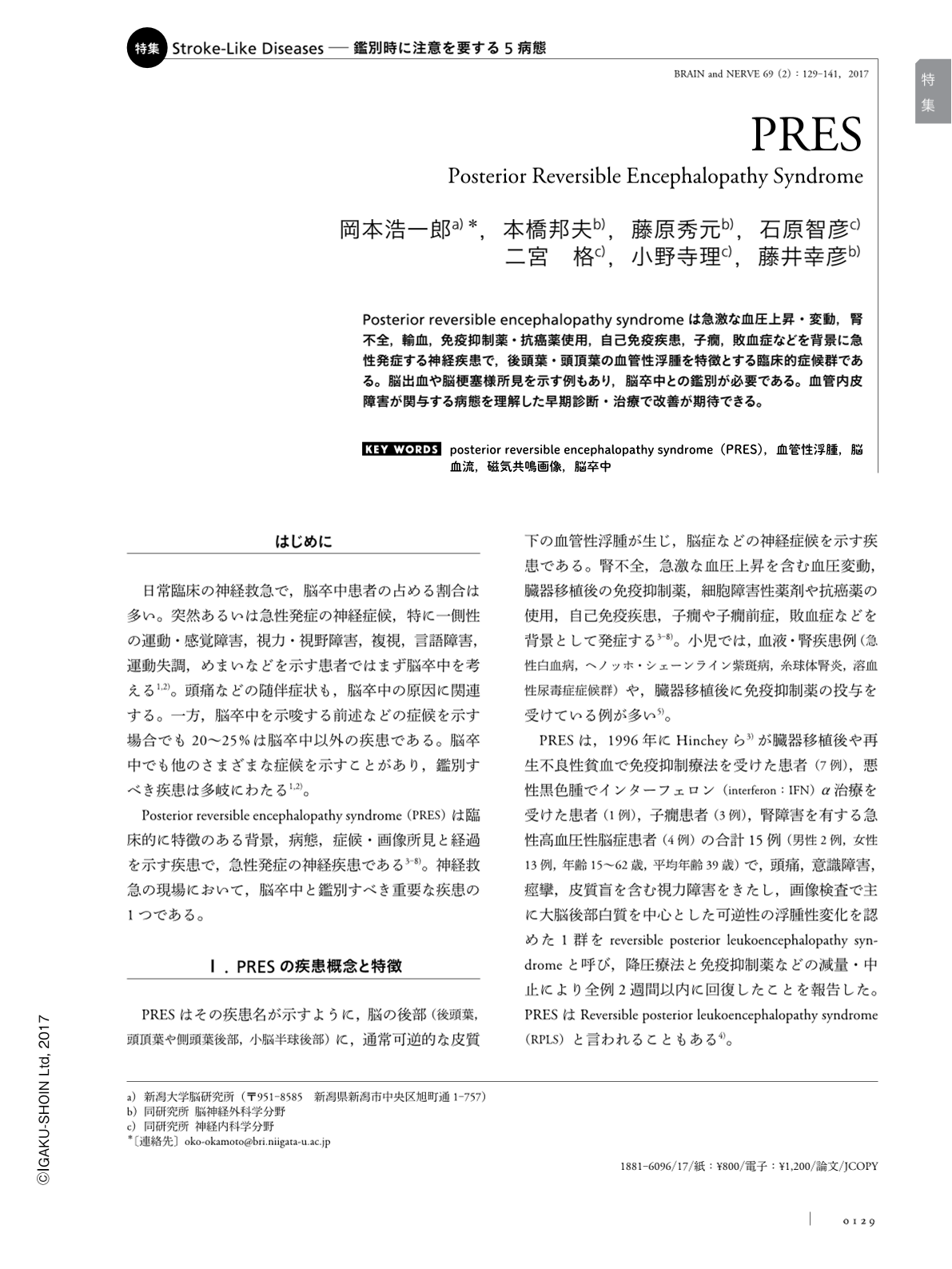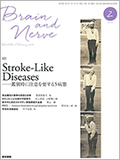Japanese
English
- 有料閲覧
- Abstract 文献概要
- 1ページ目 Look Inside
- 参考文献 Reference
Posterior reversible encephalopathy syndromeは急激な血圧上昇・変動,腎不全,輸血,免疫抑制薬・抗癌薬使用,自己免疫疾患,子癇,敗血症などを背景に急性発症する神経疾患で,後頭葉・頭頂葉の血管性浮腫を特徴とする臨床的症候群である。脳出血や脳梗塞様所見を示す例もあり,脳卒中との鑑別が必要である。血管内皮障害が関与する病態を理解した早期診断・治療で改善が期待できる。
Abstract
Posterior reversible encephalopathy syndrome (PRES) is suggested in patients with acute neurological symptoms in the appropriate clinical context, including acute hypertension, blood pressure fluctuations, renal failure, blood transfusion, immunosuppression, autoimmune disorders, and eclampsia. PRES is a clinical syndrome, and refers to a disorder with reversible subcortical vasogenic brain edema caused by endothelial dysfunction, predominantly involving the bilateral parieto-occipital regions. Although the clinical course and prognosis are favorable in most cases, intracranial hemorrhage and/or restricted diffusion similar to acute infarction could be seen in some lesions on brain magnetic resonance imaging (MRI). The spinal cord may be involved in some patients with posterior fossa lesions. Understanding the pathophysiology of PRES is helpful in making the correct early diagnosis and selecting appropriate therapies to improve its clinical course and outcome. Differentiation of PRES from strokes is critical in the setting of a neurological emergency.

Copyright © 2017, Igaku-Shoin Ltd. All rights reserved.


